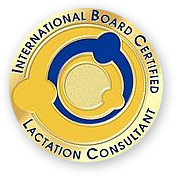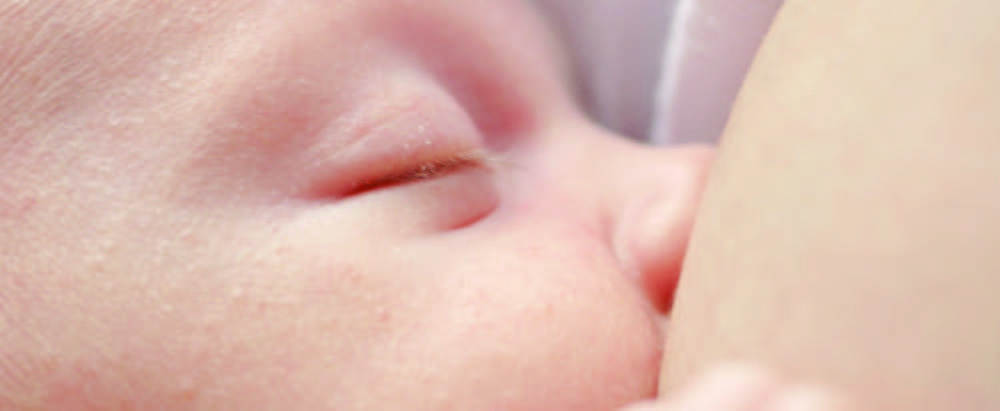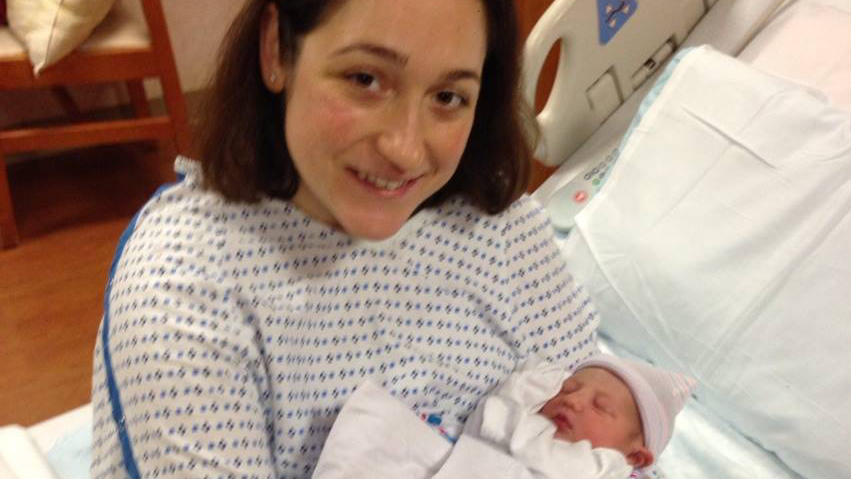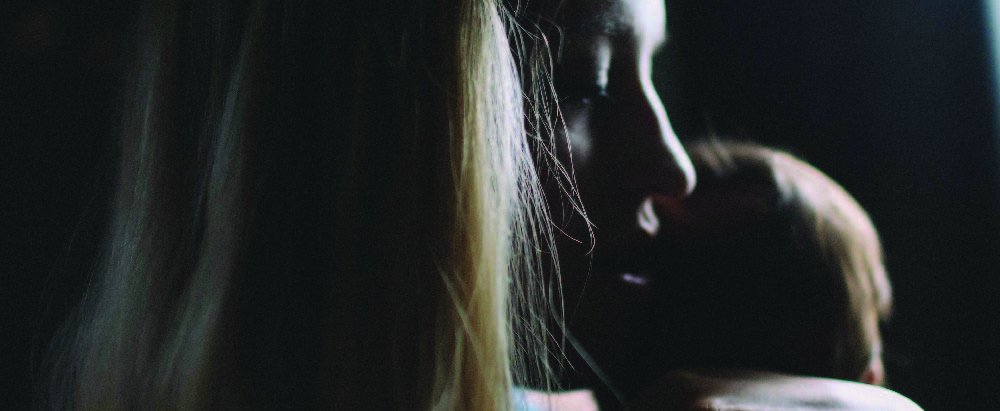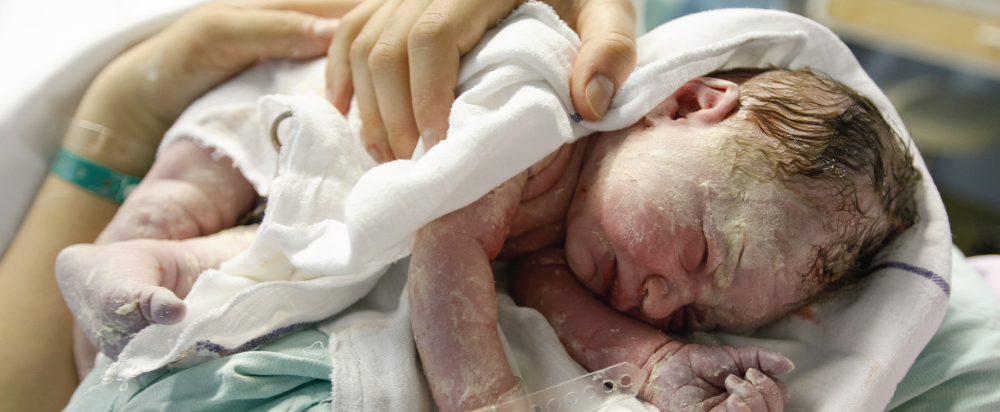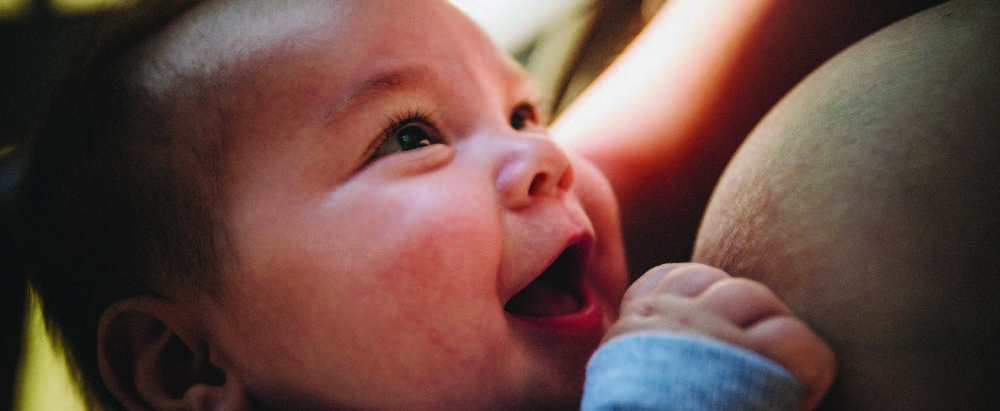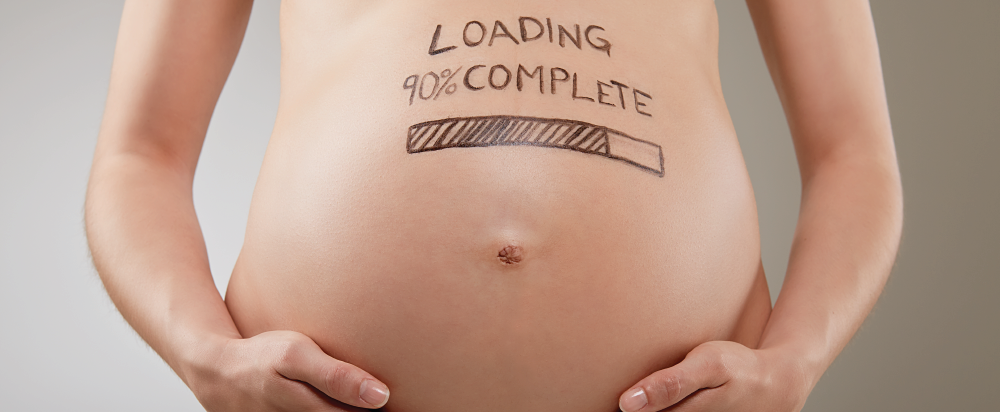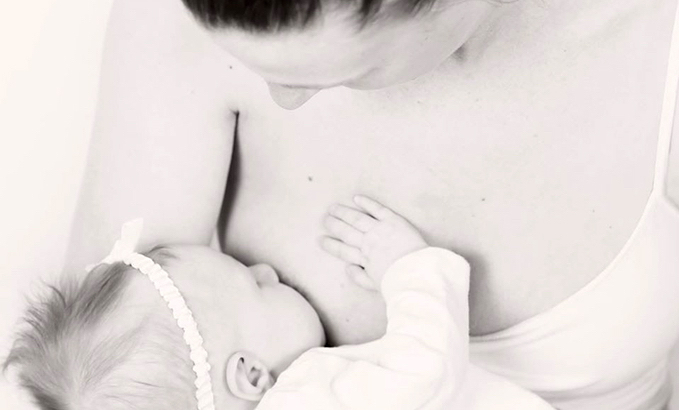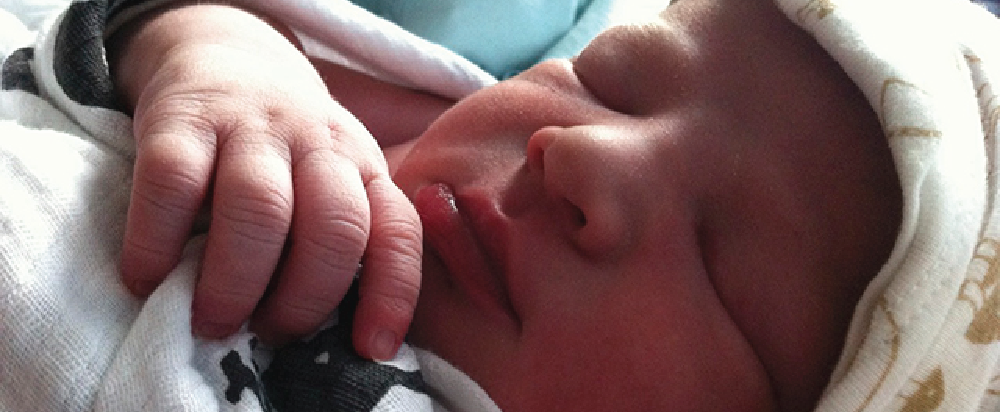- Details
-
Created: Saturday, 04 April 2020 02:10
-
Written by Donna Bruschi, IBCLC
I am frustrated because my dad is totally conscious of what we are all saying and doing.
He tries, but can no longer join in, and this makes him incredibly sad. He tries to talk and inevitably someone laughs at him, or at themselves, for losing patience with him. His words are substituted, inarticulate, whispered, told in analogies. He loses his train of thought.
A conversation with him is a series of jokes, missing a punch line; shaggy dog stories without a central character, or action. We know all the stories, so we laugh at the appropriate times, and remind him of the names and places. It is agonizing and frustrating. And still, I soak them in, because I know there won't be any more.
He walks, until the day he lays down, and starts to let go of life.
He has Parkinson's Disease and he is always cold. He starts to hate going outside, and it is just too hard to put all those clothes on him. I flash back to my three small children lined up by the door, finally in snowsuits, boots, hats, scarves, mittens, while the prickling heat and sweat are running down my face and back.
Twice or more a day, we are undressing him, then dressing him. We call his diapers, depends. There are bed pads, wet sheets, and wet pants. There are wet shirts from constant drooling. He hates when the aide pins a towel over his shirt, so I cut the backs off some of his old shirts and make bibs. I jest that I am going to upcycle a line of adult bibs made from real clothes, and call it "Clean Clothes." We all try to do everything we can to dignify his experience.
The amount of laundry is insane, so is his appetite.
He still loves to eat, but his swallowing is only 50% effective, which we know, because he goes for swallowing ultrasounds where they measure these things. He is supposed to be eating purees and drinking thickened drinks. He refuses to eat slurpy slop.
So we cook his favorites, we dice his food, remind him to chew, and watch helplessly when he gags.I remember my babies cheerfully jamming handfuls of food into their mouths, before coughing it back onto the table.
I get to know him on a physical level.
I realize we haven't always been at arm's length. I remember cuddling with him as a little girl, and being replaced by a guitar, or a book. I remember his plaintive query, "Can we do something as a family?" And either dismissing it outright, because I have my own life to live or humoring him with a family dinner, or a weekend at the family camp. I understand my own longing for my kids, and their behavior that hurts. I remind myself they have their own lives to live, and their own lessons to learn.
But now, I comb his hair, wipe his face and nose. I massage his hands, shoulders and back. I touch his arm when we talk.
Though my dad is only able to peek out at the world, his mind is going a mile a minute. He tries to decipher the code of the Persian rug--the hidden messages it is offering up. A Hospice volunteer reads science articles to him, and they talk about galaxies and evolution. He still studies his disease. He resents his illness and blames doctors for not curing him.
I remind him that at least he is still home and we love him. We care for him willingly and with love. And he is not going for chemotherapy, or living in chronic pain, or in a nursing home.
Hospice arrives.
Someone told me to call hospice early, because he has a terminal illness. We do need more help caring for him, and I am curious. He meets the threshold of need, and Medicare pays for it.
Medicare and Medicaid will pay for 6 months of hospice care, but they will not pay for 6 months of similar care for babies! I keep wondering, "What if every new mom had a visiting nurse once a week, and someone checking in three times a week for bathing, and a social worker every 2 weeks? What if they sent volunteers to babysit so new moms had a respite? For crying out loud, what if new families had a Music Therapist?
Everyone at Hospice is caring and sweet. They walk us through dying step-by-step. I remember my midwife doing this. In fact, we now have a Hospice Doula who is helping us navigate the hard parts.
My dad hallucinates, and each time I have to decide if I should tell him what reality is.
I wonder, "What is reality, anyway?" He insists there are three of my mom, and the one sitting next to him is an imposter. He gets angry and my mom cries. Over time, we figure out that there is his Blushing Bride, Mean Mom and Gentle Mom. He only likes Gentle Mom and Blushing Bride.
I don't blame him. I mean, nobody else wants Mean Mom around, either.
My mom loses track of time and reality.
Dealing with my dad 24-7 has exhausted her. She is angry, frustrated, blamed and blaming, incapable of caring for him, because she is old and tired too. She snaps at me and I cry. I am doing the best I can. The aides are doing the best they can. My dad is doing the best he can. She is doing the best she can, and it all mostly just sucks.
I bring up memories of happier times, and pull out boxes of old photos for a diversion. This helps. We tell each other stories of when she was little, when I was little, and when my kids were little. We laugh and cry. We hug and I notice how small she is getting.
Home death looks a lot like home birth.
Two weeks before he passes, my dad has his final meal of pea soup and baguette. He eats eagerly and enjoys it very much. The aide and I put his pajamas on and he goes to bed. He never gets back up. The next day he sleeps all day. He eats tiny bites of applesauce. The aide gives him spoonfuls of water and puts vaseline on his dry lips.
The following day she makes him puree that he won't eat. I call my kids and siblings, and our family begins our wait. We know he will die. We have everything ready, his trust, his will, his succession. We have his request to not resuscitate him.
Two of my babies were born at home. The last two weeks before birth were much like this. Watching for signs of progress, and on edge, guessing if this was the real start, or only another baby step, of the process. And in-between, the day-to-day routine of eating, cleaning and resting--normal family life at home.
We are ready, but he is not. He continues hallucinating, rambling on and on, in delirium. Our pastor comes one night and we pray. He asks God to show my dad His love and that night my dad settles down. His face has changed. He is at peace and he looks like he is letting go of this world. He recognizes me as I sit with him, but quickly drifts off again. I play banjo and dulcimer for him. I can't tell any more if he likes it or not but I am doing it un-self-consciously, just like he taught me.
May the circle be unbroken
My dad loved to play guitar and sing, and he inspired countless sing-a-longs as far back as I can remember. He was a mediocre guitar player and a terrible singer. But there are a lot of terrible singers this world and it didn't stop him.
The Sunday before he passes, we all gather around his bed. My brother plays guitar. We sing, using his song sheets and he tries to join in. It's hard to say if he wants us to sing, or to stop, but that train has left the station. We sing This Land is Your Land, Michael Row the Boat Ashore, Amazing Grace, Traveling Man, Erie Canal, and so many more.
I remember laying in bed, listening to my dad play, I remember dreading him singing and playing his guitar, I remember the time he came to one of my parties dressed as Elvis. I remember my kids hanging on him as he played. I remember when he tried to play a couple of years ago, couldn't, and sadly put away his guitar.
I look around the room at my brother, who started learning to play the guitar when my dad stopped, my sister doing the hand signs for Kum-Bah-Yah, my mom holding my dad's hand. I feel Michael's hands on my shoulders. I see my dad, shrunken and pale, tears in his eyes.
This is my family and I love them so much.
Each day I go to my parent's house. And each night I say, "I'm going home and will be back tomorrow. If you need to go, then go, and if you are still here, I will see you."
It's a sunny Saturday morning and I am on my way to see him.
He waits until my mom leaves the room, and dies in his bed, with an aide by his side, before I get there.
I call my brother and sister. A hospice nurse comes an hour later and pronounces him dead. She will make all the other phone calls to his doctors, to the funeral home, and to the state. She destroys the rest of the morphine, talks with us for a while, and leaves. My mom and I are relieved, more than any other feeling. She strokes his hair and I feel the deep love she has always had for him.
My sister and her husband arrive, and we bath and dress him. It's weird and a little uncomfortable, but also feels completely normal. I acknowledge I am having a life experience with roots as old as mankind. We work side by side. His body is stiff and we puzzle how to get his clothes on him. We figure it out and in the end, he looks like he is resting, before leaving on a Hawaiian vacation. Our mom wants to keep the shirt we have chosen, but we hold firm. It's his favorite shirt, he's entitled to take it to the grave.
In memento mori.
I use my sister's camera, her staging, and my skills and in the end, we have a good portrait. My mom kisses him tenderly and says goodbye. We take a picture of that, too. I give his cold hand a squeeze and thank him for being such a good dad. I'm crying.
The funeral director comes with a black bag and a gurney.
We talk about the house. He had looked at buying it before my parents bought it. He comments that the former owner died yesterday. Then, I gently lead my mom out of the room. This sun is streaming through the living room window and sitting on the couch, we will not see my dad wrapped in a black bag being bundled into the black Chevy suburban parked in front of the house.
We don't know that the following week, our family will go into self-isolation from COVID-19. His memorial is March 7, a warm sunny day, and it is a fine, large celebration of his life with family and friends, from all parts of his life. We sing Amazing Grace, Country Roads, This Land is Your Land, and of course, Kum-Bah-Yah, with my sister doing the hand signs.

